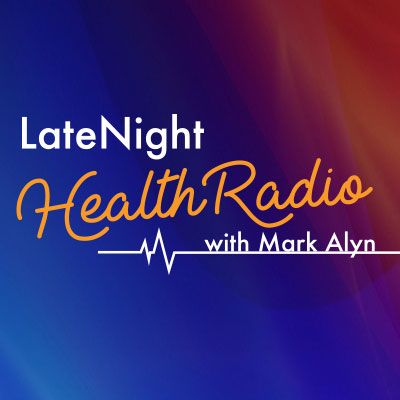Autism and Dance Movement Therapy (Part 1) - Lori Baudino 4/7/17
Apr 24, 2017 ·
16m

Download and listen anywhere
Download your favorite episodes and enjoy them, wherever you are! Sign up or log in now to access offline listening.
Description
Autism Spectrum is a disorder identified through such symptoms as repetitive behaviors/movements, lack of eye contact/facial affect changes, and associated changes in the body in regards to regulation and socialization,...
show more
Autism Spectrum is a disorder identified through such symptoms as repetitive behaviors/movements, lack of eye contact/facial affect changes, and associated changes in the body in regards to regulation and socialization, said Dr. Lori Baudino, licensed clinical Psychologist and Board Certified Dance/Movement Therapist.
Dr. Baudino treats her autistic patients through Dance/Movement therapy (DMT). “DMT incorporates ways for the child to feel accepted on a body level, for parents to understand a child's nonverbal and verbal communication, and to join through the body to co-regulate and engage the child for daily living skills and socialization” she explained.
DMT involves movement ranging from simple breathing to jumping, running, gross motor skills and even watching movement. Dance/Movement provides autistic children the opportunity to gain control and express their feelings.
Dr. Baudino calls the outcome of this therapeutic modality “Having Body Knowledge”. “The Body Knowledge enables children to focus on their feelings within the body to work through psychological challenges and integrate experiences relationships and the environment,” she explains. “With Body Knowledge the child feels seen, safe and able to express their inner thoughts and needs,” Dr. Baudino noted.
The use of therapeutic practices that encourage body knowledge help professionals and family members understand what a child on the Spectrum may be communicating, help to provide coping strategies as well as playful and creative outlets to explore emotional themes and interests. The child can increase range of movement and intentionality to support motor planning, sequencing and problem solving.
“With this knowledge and embodied modality the child can work towards feeling comfortable in new environments, communicate needs to others, and feel calm and secure. The child can also develop insight into his/her emotional needs, and be given opportunities to be creative and playful with family and friends.
air date: 4/7/17
show less
Dr. Baudino treats her autistic patients through Dance/Movement therapy (DMT). “DMT incorporates ways for the child to feel accepted on a body level, for parents to understand a child's nonverbal and verbal communication, and to join through the body to co-regulate and engage the child for daily living skills and socialization” she explained.
DMT involves movement ranging from simple breathing to jumping, running, gross motor skills and even watching movement. Dance/Movement provides autistic children the opportunity to gain control and express their feelings.
Dr. Baudino calls the outcome of this therapeutic modality “Having Body Knowledge”. “The Body Knowledge enables children to focus on their feelings within the body to work through psychological challenges and integrate experiences relationships and the environment,” she explains. “With Body Knowledge the child feels seen, safe and able to express their inner thoughts and needs,” Dr. Baudino noted.
The use of therapeutic practices that encourage body knowledge help professionals and family members understand what a child on the Spectrum may be communicating, help to provide coping strategies as well as playful and creative outlets to explore emotional themes and interests. The child can increase range of movement and intentionality to support motor planning, sequencing and problem solving.
“With this knowledge and embodied modality the child can work towards feeling comfortable in new environments, communicate needs to others, and feel calm and secure. The child can also develop insight into his/her emotional needs, and be given opportunities to be creative and playful with family and friends.
air date: 4/7/17
Information
| Author | Late Night Health |
| Organization | Late Night Health |
| Website | - |
| Tags |
Copyright 2024 - Spreaker Inc. an iHeartMedia Company
